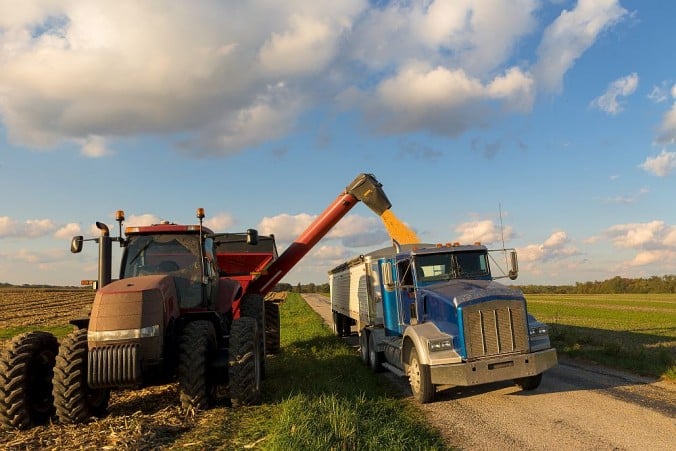
With farms sharing equipment, expanding their reach and offering services to other farms, it’s critical to know the federal and state regulations applicable to Truck Drivers. The Federal Motor Carrier Safety regulations (FMCSR) provide exemptions from some compliance for farm vehicle – truck drivers. However, too often farm businesses make wrong assumptions about their exemption from the rules.
For example, if your truck drivers goes over 150 air miles to haul equipment, if you are being hired by another farm, or you are hauling anhydrous ammonia tanks to the field, you are no longer exempt and must comply with FMCSR regulations including drug testing, driver qualification files and more.
Let’s explore some of the basic rules on farmer exemptions. This is not a full list of FMCSR requirements and we recommend reading through your state commercial motor vehicle compliance laws.
REQUIRED FOR ALL
FMCSR requires all farmers to comply with Parts 392 (Driving of Motor Vehicles), 393 (Parts and Accessories), and 396 (Inspection, Repair, and Maintenance). A few key requirements to note:
— No cellphone use while driving unless hands-free. CB radios allowed to be used.
— Annual vehicle inspections for each truck. Sticker on truck or inspection sheet must be with the vehicle.
— Post-trip inspection written report is required at the completion of the each day a vehicle is operated.
— Pre-trip inspections must be completed. Any repairs noted on the prior driver’s post-trip must be signed-off that it has been repaired prior to operating.
— Accident records must be kept three years.
— Identification and marking of USDOT on vehicles.
EXEMPTIONS FOR FARM VEHICLE DRIVERS
In order for a person who operates a commercial motor vehicle to be exempt from some of the FMCSR under the Farm Vehicle Driver exemptions, all of the following must be met:
- The vehicle is controlled and operated by a farmer, their employee or family member;
- It is being used to transport agricultural products, farm supplies, or farm machinery to or from a farm;
- It is not being used in a for-hire operation;
- It is not carrying hazardous materials in an amount that requires placarding; AND
- It is being used within 150 air miles (173 statute miles) of the farm.
Farm vehicle drivers are exempted from several FMCSR compliances including, but not limited to, drug testing requirements, obtaining copies of medical cards and driver qualification files. Even if your employee meets the farm vehicle driver criteria above, they still have to log their hours if they drive over 100 air miles across another state.
If a driver does not meet the above criteria for a farm vehicle driver, the farm must adhere to the FMCSR including, but not limited to, maintaining driver qualification files, adhering to drug testing policies and more. Let’s explore these driver files and drug testing in more detail.
DRIVER QUALIFICATION FILES
— Driver application for employment (pre-hire)
— Inquiries into past employment the last three years (pre-hire)
— Motor vehicle records
— Copy of current medical card
— Road test
— Annual violation certificate and review of driving record (must be completed each year)
DRUG TESTING
— Pre-employment drug testing required
— Post-accident potentially required depending on accident
— Random drug testing required
— Reasonable suspicion
If you are required to place your drivers into a random drug testing pool, I have found it relatively inexpensive to join a consortium pool and have an outside company track, administer and ensure your drug testing. If you search online for consortium drug testing or occupational drug testing, you should be able to find a company that provides that service in your area. They would also be able to assist with pre-employment testing as well.
My recommendation is to analyze how and where you utilize your farm drivers. Ask yourself: Are you 100% sure you are in compliance with your federal and state regulations? If not, seek out expert help. Then, review compliance annually to ensure you stay on top of changes. It may save you both headaches and fines down the road
-Lori Culler, Owner AgHires





